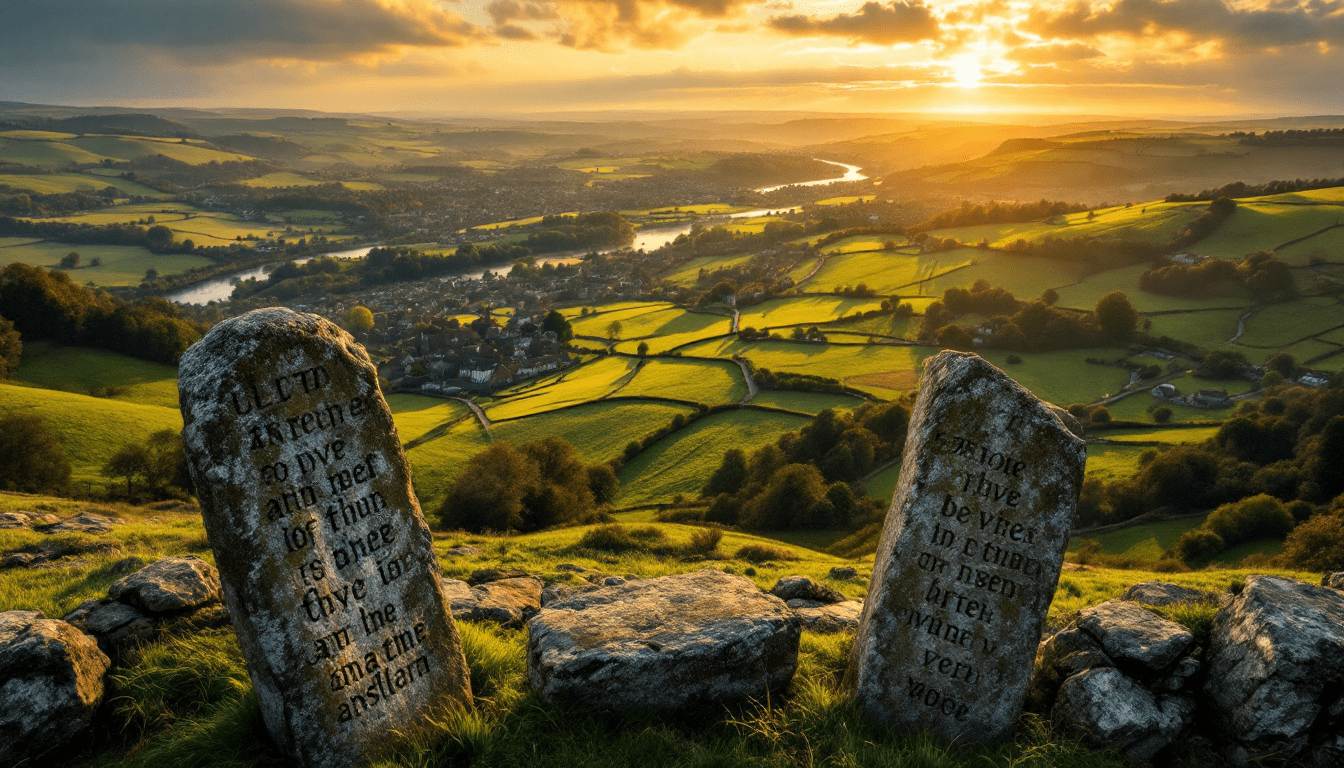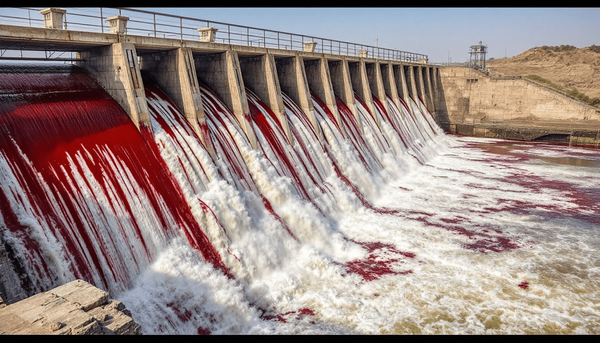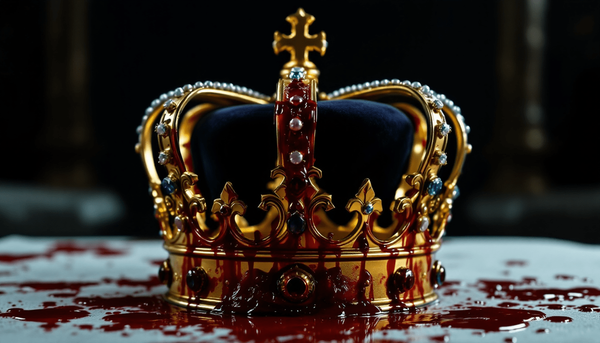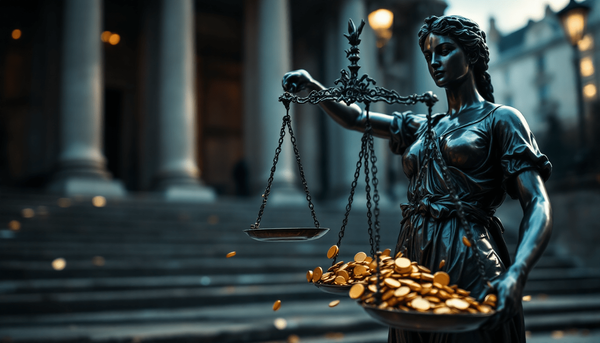"The UK", Britain, England, and How To Distinguish Them
What is "The UK", and when did we start calling it that? Legislation charts these shifts. From Rupert Lowe's Restore "Britain" to Ben Habib's Advance "UK", it is important to understand who and what precisely it is we are talking about, especially if we intend to advance or restore it.

England is a country named after its people — the English. More precisely, “Engla land” is Old English for “land of the Angles,” the North-West Germanic tribe who settled here in the post-Roman period and remained for a millennium. England, then, is still named — by and large — after those who inhabit it. Roughly 25–40 per cent of the modern Englishman’s ancestry is Anglo-Saxon, especially in the East. The second-largest component is Celtic. But on present trends, England may soon be a country no longer named after its inhabitants.
As of the 2021 Census, just 36.8 per cent of Londoners identify as White British, a striking drop over the past thirty years. It’s within this same window that the strange legalese of “The UK” (spoken, tediously, as “The Yoo-kay”) has surged. Some have even started calling this shift Yookayification. But when did this term begin its top-down shift in self-identification? Who asked for this? And crucially — should we call this entire landmass England?
I prefer “England” whenever I can, though others look further afield and opt for “Britain” or “Great Britain.” Our Olympic team is Team GB. We have GB News and Good Morning Britain. Our car plates once bore “GB” as our international identifier — until September 28, 2021, when this was unceremoniously switched to “UK.”
We live now in the slippery age of dropdown menus which insist “The UK” is correct. You must scroll past the United Arab Emirates and the United States to find it. British passports have nothing to say about Englishness. Nor about Scottishness, Welshness, or Northern Irishness. Recently, when giving my passport as identification to someone not familiar with British passports, I was mistaken for being... Irish. This is because at no point do passports mention anything that sounds like a country, besides "...United Kingdom of Great Britain and Northern Ireland", hence the mistake.
If we drill down on the terms, Rupert Lowe's Restore Britain and Ben Habib's Advance UK represent very different things. One looks to restore the island on which England sits (Great Britain). The other, suggests an advancement of the initialised ("UK") territories as conceived in the year 1927, with the name given to them around the year 2000. Names are important when dealing with what it is you wish to restore, or indeed, advance. It is always good to know your terms before doing either.
In 2025, we live in the wasteland of “UK” dial codes and EU-UK Trade and Cooperation Agreements (2021), but, we can trace the path of good intentions which brought us here in the annals of domestic legislation. So let us pick apart what "The UK" actually is, and what terms have been used to describe our state over our history.
The Peoples Of Great Britain
The Treaty of Union (1706) united the Kingdoms of England and Scotland — and England’s vassal (since the 1530s) Wales — under one crown and one Parliament (the English one). The Act called the new entity “the Kingdom of Great Britain,” with its “Parliament of Great Britain.” The island was Great Britain, and so was the newly united state that sat upon it.
The Act of Union (1707) made this treaty law. The phrase “united kingdom” appears 26 times, notably, never with a capital U. It was a united kingdom in a taxonomic sense, not a formal one. It is not disputed that between 1707 and 1800, our state was called “Great Britain” or the “Kingdom of Great Britain.”
The Act of Union (1800) brought Ireland into the fold, forming the “united kingdom of Great Britain and Ireland” — again, with a lowercase “u.” This phrase appears only four times in the Act. “The United Kingdom” was not the preferred usage.
In 19th-century documents, “Great Britain” dominates. “United Kingdom” appears rarely from the Georgian through Victorian eras. Google Books’ Ngram viewer backs this: “Great Britain” was more commonly printed than “United Kingdom” from 1700 until the post-WWII years, after which “United Kingdom” began its rise.
No major newspaper front page mentioned “The UK” or even “United Kingdom” at the outbreak of WWI. The government’s press release said: “a state of war exists between Great Britain and Germany.” Headlines blared “England and Germany at War.”
All Of It Was "England"
In 1965, historian A.J.P. Taylor observed when the Oxford History of England began, “England” was still a catch-all. He wrote:
It meant indiscriminately England and Wales; Great Britain; the United Kingdom; and even the British Empire. Foreigners used it as the name of a Great Power and indeed continue to do so.
“England” was often shorthand for our entire nation — even after the Acts of Union. Perhaps this explains why I’m instinctively drawn to it. According to Ngram data, “England” still enjoys broader use than “Great Britain” or “United Kingdom,” likely because it contains the vast majority of the population (57 million of 68 million) and has the largest global diaspora.
A helpful gauge of national identity is symbolism: in the 18th and 19th centuries, the satirical character John Bull personified the common Englishman. He debuted in 1712 and remained iconic through WWI — even appearing on recruitment posters (by then wearing a union flag waistcoat).
Yet the usage of “England” has steadily declined. Churchill noted this on St. George’s Day, 1933:
There is a forgotten, nay almost forbidden word… that word is England.
The Ngram data confirms this decline from the late 19th century onwards. Today, even institutions like Cambridge University Press or the Church of England hesitate to say “England,” preferring the dropdown-menu legalese of “UK.” Even St. George’s Day has faded, displaced by UNESCO’s “World Book Day,” a 1995 invention.
The Honourable Society of Middle Temple — my Inn of Court — has picked a side in this conflict, despite bearing St. George’s Cross in its arms.
The Emergence Of "United Kingdom”
To see “The United Kingdom” as a usurpation of “England” may not be far off. The term first gains dignity in an Irish nationalist context. “United Kingdom” appears sparingly in 19th century legislation, and always when distinguishing these isles from imperial affairs abroad, appearing in 48 pieces of Primary and Secondary legislation.
That said, it is not until the Anglo-Irish Treaty (1921) — which established the Irish Free State —that the “United Kingdom” as a proper noun begins to cement. It appears only once (compared to six mentions of “Great Britain”) — but crucially, it is used to distinguish the creditor (the United Kingdom) from the debtor (the Free State), a debt which played no small part in Ireland’s full departure in 1949.
The Royal and Parliamentary Titles Act (1927) made the name official: the “United Kingdom of Great Britain and Northern Ireland.” Section 2(2) states:
in every public document… the expression ‘United Kingdom’ shall… mean Great Britain and Northern Ireland.
This wasn’t a name forged in pride, but one crafted in the shadow of loss. The “United Kingdom” is a state named in spite of what it no longer contains: Ireland. The title is an overcorrection. What we might now call cope.
While royal assent made “United Kingdom” law, the initialism “UK” only gained traction in the 1960s and 70s, peaking with Tony Blair’s election in 1997. Its rise tracks with the internationalist commercial era of the 1980s and the onset of devolution. This was a time of systematic diminishment of England, despite it comprising the majority of the Union’s people.
“The UK,” in all its abbreviated vagueness, is the post-Blair state, possibly intended to signal the permanence of his constitutional reforms. I discuss the creation of "The Blairite Constitution", and how it is a reification of all the post-war presumptions here. "The UK", as a proper noun, is the new state, saddled with that constitution. In 2018, even our Parliament was rebranded. Not by Act of Parliament, but by a London design agency namedSomeOne. The “Houses of Parliament” became “UK Parliament.” This reportedly cost £50,000. A steal.
Attlee Creates "British" Citizenship
The term “British Isles” dates back to Pytheas of Massalia (4th century BC), who called it Prettanikē. By the time the Romans arrived in 43 AD, they named the province “Britannia.” The name stuck.
The term “Britain” and its imperial overtones dominated print culture during the imperial age. Lord Macaulay, writing in the 1840s, declared:
She [Britain] has seated herself on the throne of the world, a new Rome… from her farthest provinces, the sun never sets.
Despite being citizens of the “United Kingdom,” we are not called such. Instead, we are British citizens — a product of post-war empire collapse. The British Nationality Act (1948), drafted with astonishing naïveté by the Attlee government, gave settlement rights in Britain to all Commonwealth citizens. The result: six-figure annual migration: tame by today’s migration crisis’ standards, but unprecedented at the time. You can see how things have accelerated in recent years, in depth, from our writer Charlie Cole, here, but six-figure net migration was unthinkable in the mid 20th century.
Subsequent legislation succeeded in managing the influx flowing from the 1948 nationality act, but the question of citizenship remained unresolved until the 1981 Act, which abolished birthright citizenship. Its message: if you’re here now, you’re British.
The 1980s also birthed the Public Order Act (1986), criminalising any speech on race which is not wholly positive — still the case today, to disastrous effect, as I discussed here for The Critic and here in The Restorationist. Together, these laws tried to cauterise Britain’s racial tensions by mystifying “Britishness” and banning all dissent.
Both the 1948 and 1981 Nationality Acts were fumbled efforts, addressing novel problems. One of the most direct proposals on how to square the legacy left by them, and recognise the indigenous population of these islands in law, has been put forth in The Restorationist's proposal for a legislative reset of nationality and citizenship, we call it the "BINCA" Bill, and it forms part of our raft of legislation to achieve a full constitutional reset.
The Absurdity of Abstract "British Values"
If you take one look at X/Twitter discourse on Britain, England, and who its people are, you can see the levels of sheer postmodern headache which is ongoing for those who lack the knowledge, or certainty. It is therefore unsurprising Britain is having an identity crisis.
One symptom of that identity crisis is the concept of “British Values”; largely a recent invention, and it is one which seeks to side-step the more courageous task of defining a distinct British people – or even what an Englishman is (a question Tom Rowsell neatly did here). Search trends suggest that in 2014 people abruptly began scrambling to discover what "British values" were in large numbers, few seem to know what they are, many have formulated them as follows. I summarise:
- Being a democracy,
- Having laws; and crucially,
- Having an unquestioning openness to all things and people.
Observant readers will notice 1 and 2 are bare civilisational minimums for a democracy, and 3 is not a value at all, but rather a total capitulation to external forces. The contradiction which has destroyed British civilisation is laid out in how “British Values” are conceived.
Britain does not have abstract Euro-style techno-"values." The English, Scottish, Welsh and Irish peoples have customs, conventions, and traditions.
A Manufactured Identity Crisis
“The UK” fits our post-imperial state: a stitched-together patchwork of freshly devolved legislatures, shorn of their further collective reach and now seeking to govern domestically in the same manner we once governed our empire. "The UK" is a name which acknowledges the past only through what has been lost.
“United Kingdom” was made official in the wake of Ireland’s departure in 1927. Before that, it was merely a descriptor. The initialism of “The UK”, to my mind, is the name of a state so aesthetically, culturally and demographically altered by the effects of mass immigration that it has become a distinct political and cultural entity to Historical Britain. We have been asked to live in the age of scouring dropdown menus and “UK” international dial-codes. That is why, personally, I love England.




